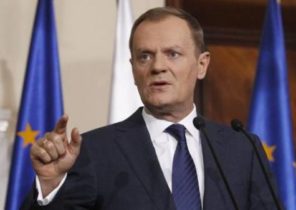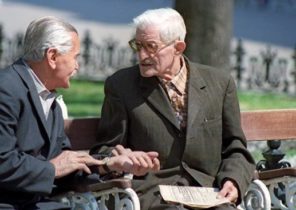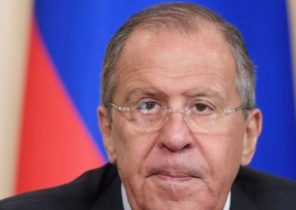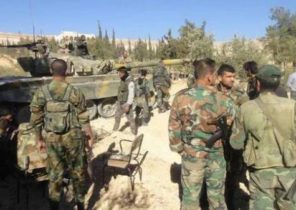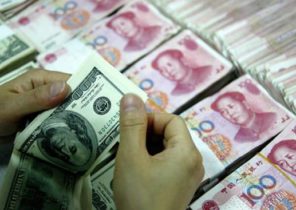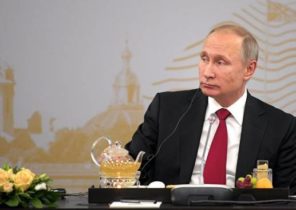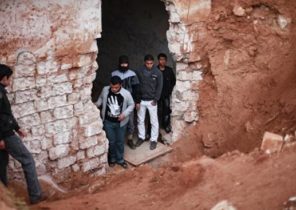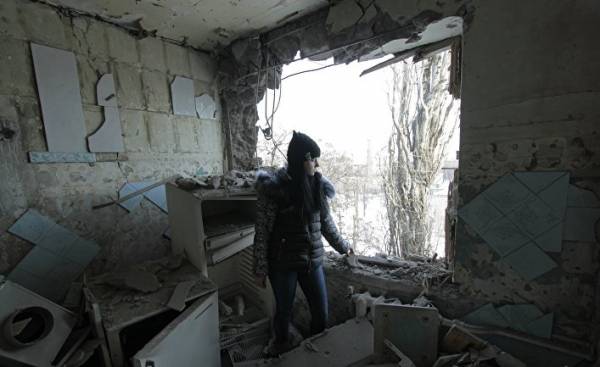
Donetsk, February 16, evening
22 full containers in a row in the kitchen. In the corridor, the bag in which Packed your passport and other important documents. For three years war, the residents of Donetsk used to be in constant readiness for the bombing.
Cold chicken soup. Mother Natalia left the half-empty pan on the stove. If the night knocks out the electricity, the soup will be enough for one meal for Natalia, daughters Tatiana (16 years old) and Dasha (15), and grandmother of Valentina (68).
If the water pipes burst again, as it was during the attack in February, they will last with water in cans.
When three ago when the first artillery attack, the children scared to death.
Today they are busy in the craters from missiles and used as toys, parts of bombed-out cars.
“For three years we are accustomed to these sounds,” says Tatiana and shrugs, wondering why she should get used to this.
Before she didn’t need to worry about anything other than the usual teenage worries and homework. And then the war began. Since then, she had learned quickly to hide in the basement. Two years ago it was filled with grenade fragments. She thought the shelling had stopped, and climbed out of the basement. When she was about to open the door to the second floor, a grenade exploded. Tatiana is crying, talking about it.
“Mentally I was very much affected,” she says.
They are ready to run
Now byt they are very prepared for an emergency.
Is there enough left of stearic candles? Of batteries? Food? The bag, in case need to run?
“When we start bombing, we take a bag in the basement,” says Tatiana.
If you start a full-scale war and someone else to occupy the territory, they can still prove that you own the home. If the house will still be standing. This is the worst of the possible scenarios, but after three years of almost continuous fighting, they prepared for what can happen anything.
Outside the window she could hear the muffled claps, then a roar resembling thunder.
“Incoming. Nothing to worry about. It is very far away,” says Tatiana, seeing our puzzled looks.
The mother Natalia is a warm Bathrobe. She’s sitting closest to the open window.
Dad — a soldier in the volunteer army
Besides the fact that Natalia is worried all the time for daughters, she has another reason to feel concern and horror. It was her husband. His name she does not want to call because of security reasons, he was a soldier in the Donetsk volunteer army. He is from the beginning of the war.
Where it is on the front, a cellular connection is weak. Sometimes it takes a few days before the family receives from him some news.
“I’m worried about dad. Because there is a war. What else can I feel?” — says Dasha.
In the living room by family of three beds. One for her husband, one for sisters and one for grandma. Purebred dog whirligig sleeping in a small space between the beds Natalya and grandmother. When at night you hear the roar of the bombing, Yula and a cat Asya usually hiding under the kitchen table. As almost each house in the Kiev district, in their building was also hit by the rockets.
Nowhere to go
Their area is located near the Donetsk airport, where fierce fighting unfolded. In this direction, still flying artillery from Avdeevka, which is controlled by government troops. From the front, where we have a couple of days ago, we met with Ukrainian soldiers. Who argued that only respond to attacks from the side of Donetsk.
Gaping holes in residential buildings, the broken Windows and the damaged fragments of the wall talk about how civilians were affected by war. Many have no opportunity to leave the house. They just have nowhere else to go.
Natalia and her family for a long time so interrupted here. She works in the Park and gets a small salary, and her husband paid the new government of Donetsk.
“He gets paid, but very little. It is enough for food but not for clothes,” says Natalia.
During the interview, we continually hear the noise of incoming and outgoing shells. Exactly the same sounds were heard, when we were here two years ago. The ceasefire is not respected any of the parties.
“I wonder when this is all over?” Natalia says.
Expressen: I Think it is possible that Ukraine will re-unite?
Natalia: no, No. No one wants to unite with Ukraine.
— Why do you feel such feelings?
— Before the war we were United. But you see how they are bombing and killing us. Therefore, we do not want to unite with Ukraine.
Tatiana and Dasha sit quietly at the kitchen table. The kind of life they did not choose. Again the distant thunder. “Incoming,” explains Tatiana.
“Don’t worry. They are far away.”
Donetsk, February 17, morning
Before the war in Donetsk school №58 went 900 students.
Today there remains only 120 children.
“Many went to Russia or Ukraine”, — says the Director Irina Ponomarenko.
High behind her in her spacious office hangs a portrait of the leader of the separatists, Prime Minister Alexander Zakharchenko. Beside him is a flag of the self-proclaimed Donetsk people’s Republic. And in the distance on the right, on the dresser in the frame is a photograph of Russian President Vladimir Putin.
“Putin sent us humanitarian aid in times of need. Compare that school before now.”
Irina Ponomarenko shows photos of the school after the bombing in 2014 and 2015. For the airport in Donetsk intensive fighting. Both sides used heavy artillery, which is often missed and got into schools, homes and even hospitals, which were behind the line of fire. School No. 58, built in Soviet times, in 1937, with a strong stone floors and long corridors, was one of the most damaged buildings on this side of the front.
One rocket hit the roof. Another demolished the wall between the old and new — built in 1975 — pieces of the school.
“Children in the bombing of the school was not”, — says the Director.
The disciples were hiding in shelters or have left the region. When was the most turbulent time children receive homework over the Internet.
In school — water battery. So they do not burst from freezing, the teachers gathered at the school on the day after the bombing. They managed to close the broken Windows to save heating and future of the school.
But only a small proportion of the children who once studied here, returned. Of the 900 students in the school there are 120.
In one of the few classes to be used sitting Lisa, Nastya, Diana, Plato and disciplined nine other first graders. Children dressed in school uniforms and are taught the Ukrainian language.
“See, we speak Russian, but we do not cease to teach the Ukrainian language only because I don’t want to be a part of Ukraine”, — said Irina Ponomarenko, happy that there is someone to show that the school system is functioning of Donetsk and the Ukrainian language are respected.
The number of hours devoted to the study of the Ukrainian language has changed, she admits: “They became less”.
The language question stood for a long time in Ukraine is very acute and were a stumbling block, because in the Eastern parts of the country and in Crimea, the majority of residents speak Russian.
The protests on the Maidan started after the then President of Ukraine Viktor Yanukovych, who most strongly supported just Eastern regions, the preferred trade agreement with Russia cooperation with the EU.
Just a few days after it was dismissed, the new government began to discuss the question of law about the legitimacy of languages. After that, Russia annexed the Crimea and the Lugansk and Donetsk regions bordering Russia — declared their independence.
“We are in Donetsk, the language issue didn’t bother — before the war”, — said Irina Ponomarenko.
The Director says that she has relatives and friends on the Ukrainian side. Sometimes she manages to pass all bureaucratic obstacles at checkpoints, and she comes to visit. She can imagine a scenario in which the region will become part of Ukraine as an Autonomous Republic.
Almost all of those with whom we speak, including Irina Ponomarenko, believe that the Western media took the bait of Ukrainian propaganda, and therefore took her side in the conflict.
“Darling, tell Europe about how we live. While you guys are talking about the Syrian children in the East of Ukraine children also die.”
Irina Ponomarenko says enthusiastically about the Minsk agreement, which again will be discussed on February 20. She hoped that both sides will then take heavy weapons from the front. Then she proudly shows off on the roof, which collapses during the bombing.
“Russia helped us to fix it”.
